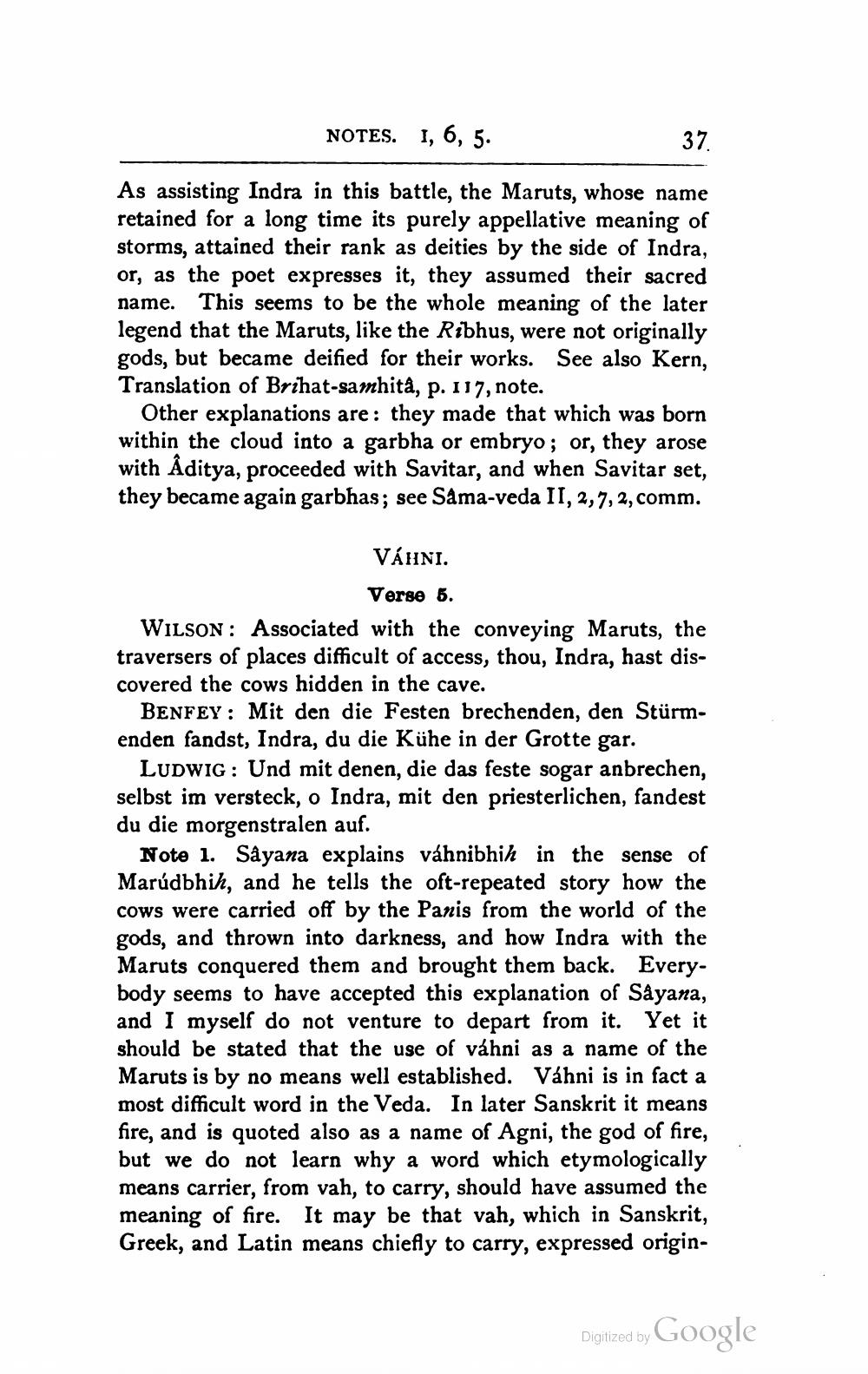________________
NOTES. I, 6, 5.
37.
As assisting Indra in this battle, the Maruts, whose name retained for a long time its purely appellative meaning of storms, attained their rank as deities by the side of Indra, or, as the poet expresses it, they assumed their sacred name. This seems to be the whole meaning of the later legend that the Maruts, like the Ribhus, were not originally gods, but became deified for their works. See also Kern, Translation of Brihat-samhità, p. 117, note.
Other explanations are: they made that which was born within the cloud into a garbha or embryo; or, they arose with Åditya, proceeded with Savitar, and when Savitar set, they became again garbhas; see Sama-veda II, 2,7,2, comm.
VÁHNI.
Verse 5. WILSON: Associated with the conveying Maruts, the traversers of places difficult of access, thou, Indra, hast discovered the cows hidden in the cave.
BENFEY: Mit den die Festen brechenden, den Stürmenden fandst, Indra, du die Kühe in der Grotte gar.
LUDWIG: Und mit denen, die das feste sogar anbrechen, selbst im versteck, o Indra, mit den priesterlichen, fandest du die morgenstralen auf.
Note 1. Sâyana explains váhnibhih in the sense of Marudbhih, and he tells the oft-repeated story how the cows were carried off by the Panis from the world of the gods, and thrown into darkness, and how Indra with the Maruts conquered them and brought them back. Everybody seems to have accepted this explanation of Såyana, and I myself do not venture to depart from it. Yet it should be stated that the use of váhni as a name of the Maruts is by no means well established. Váhni is in fact a most difficult word in the Veda. In later Sanskrit it means fire, and is quoted also as a name of Agni, the god of fire, but we do not learn why a word which etymologically means carrier, from vah, to carry, should have assumed the meaning of fire. It may be that vah, which in Sanskrit, Greek, and Latin means chiefly to carry, expressed origin
Digitized by Google




